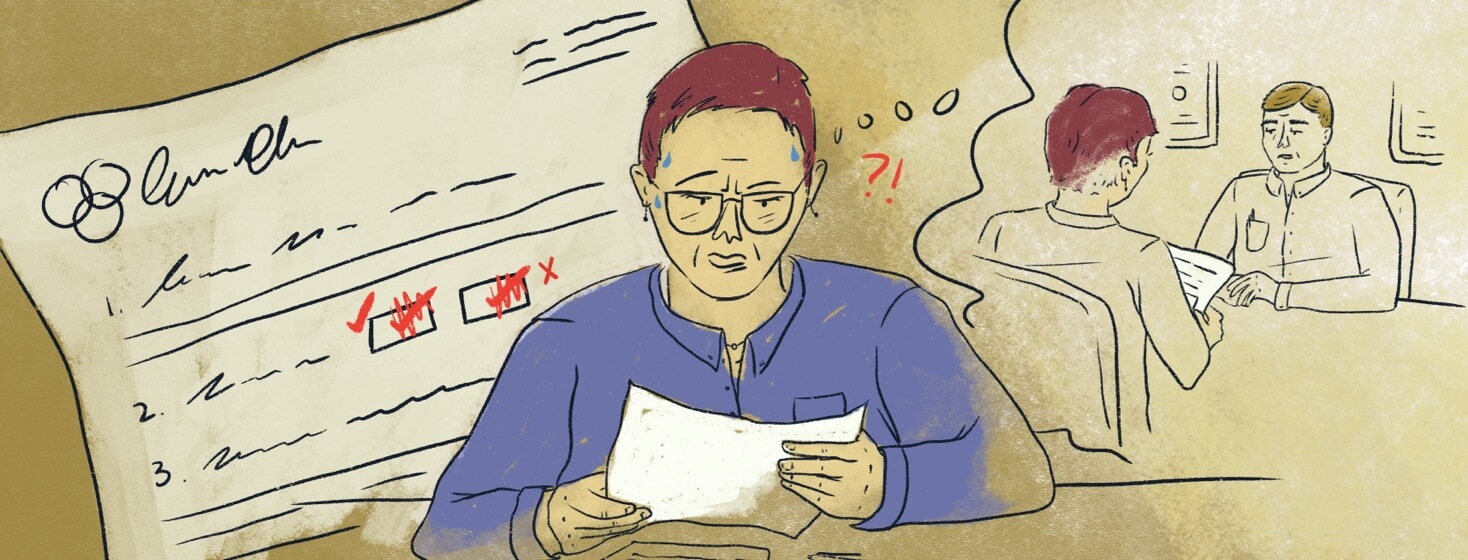A Career Path Rerouted by Epilepsy
I had to laugh. Cardboard boxes scattered across the floor in my new Minneapolis apartment. I unpacked 1 and reached in to find something I hadn't seen since high school.
I've moved around the country a few times for work, so my parents have held onto my sentimental items. Now I finally took some boxes off their hands. In this one, I pulled out my 9th-grade career project and opened it with curiosity.
It was a road map of my future career in detail, both in illustration and text. From the major I would study in college, to the places I would relocate for my career, to the time I would get married and have kids.
Naive? Yes. But as a healthy, athletic 13-year-old, I had no reason to think life would turn out anything but perfect if I set goals and worked hard.
The unexpected detour: my first seizures
Well, that expectation played out pretty well until I turned 25, and seizures started occurring frequently. Four years later my life took a big detour after a seizure ended my career. Brain surgery was next, followed by a documentary for PBS about my journey, "Brainstorm." I believed the detour had finally redirected me down the right path.
But in reality, nothing has gone according to plan since. I was excited that "Brainstorm" led to speaking opportunities to reach people in all aspects of healthcare, as well as people fighting epilepsy. But the path to a new career has also been bumpy.
Applying for jobs with epilepsy
I've looked into many jobs outside of TV news but the outcomes have left me discouraged. One of the jobs I was very qualified for, had great recommendations for, and got an interview for asked in the application if I had a disability.
It was voluntary. They said they were an Equal Opportunity Employer and did not discriminate based on physical disability, among other things. I felt trapped.
The Americans with Disabilities Act says before an offer of employment is made, an employer cannot legally ask questions about an applicant's medical condition. Was this legal if I was answering voluntarily? If I checked yes under disability, the next question asked for the specific disability, with seizures being just one option. I wasn't applying for a job that seizures could affect.
Did this affect my application?
Clearly, they'd like to know, and for what reason? Then I was supposed to mark a box that says: "I attest that I have given true and complete information on this application." Though I've been told to never disclose epilepsy to employers, a quick Google search of my name clearly gives it away. Was I supposed to lie?
Though I truly want to give every employer the benefit of the doubt, offering up that I have epilepsy felt like an easy way for them to weed out applications. But my gut told me I should never lie on a job application, so I dutifully placed check marks in the boxes. In the end, I didn't get the job, and I'll always wonder if epilepsy was a factor. I hope not.
The greatest effect on my career
My career is tied to epilepsy. That's something I can never change, and I shouldn't have to change. Thankfully, some organizations don't want it to.
Each speaking opportunity makes me more fulfilled because I love connecting with people. The best part has been people sharing their own stories of triumph. The hardest part has been people sharing their defeats. The most important part has been lifting each other up.
Aside from speaking, the International League Against Epilepsy asked me to edit their brain surgery videos, which I really enjoy. My sister Sara encouraged me to write a memoir. I was surprised to discover I really liked writing the book, which is now in the publishing process.
Sometimes a new path surprises us
The most surprising job to come along has nothing to do with epilepsy or journalism, but instead, 5- to 11-year-olds. I substitute teach full-time in one school and I love it. Never in my wildest dreams did I think helping kindergartens pronounce their vowels and 5th graders simplify fractions would be a good fit for me.
It's interesting the new routes life can take you on. Sometimes you'll be headed straight for a storm. But when the clouds clear and the rising sun presents a new path, take it. And take advice from people who want you to succeed.

Join the conversation